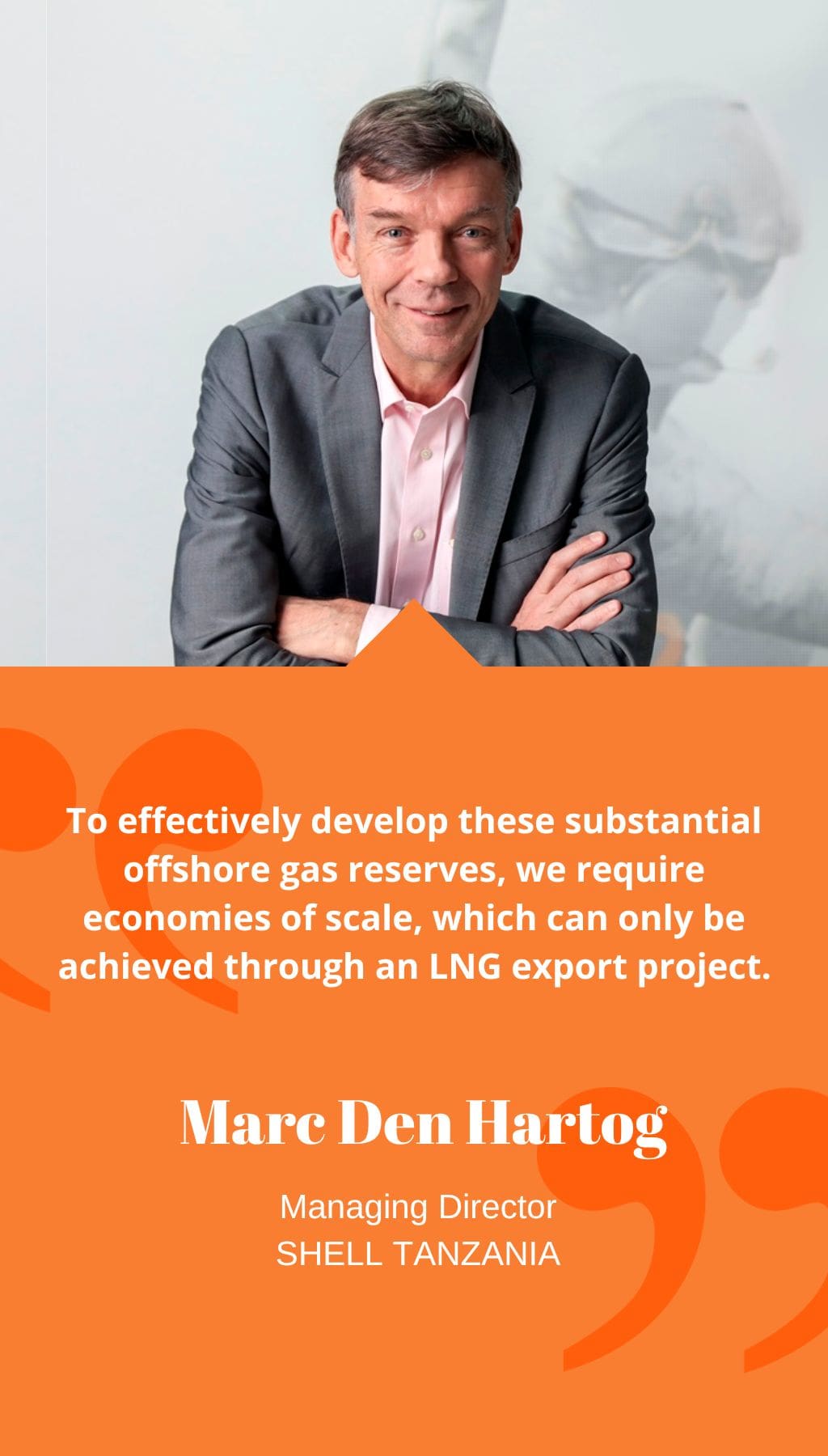
- Tanzania | 3 March 2018

Can you explain the distinctive characteristics of Tanzania’s natural gas discoveries and the operations conducted by Shell in the country?
Our primary focus revolves around Tanzania’s integrated LNG development, which is based on three deep-water offshore blocks where significant dry gas reserves have been found. Shell operates two of these blocks, while Statoil operates the remaining one. We are collaborating to establish a joint LNG onshore processing plant in Lindi, located in southern Tanzania. The plant will facilitate LNG exports, as well as the supply of processed gas to the domestic market. Unlike the relatively straightforward and rapid oil discoveries in neighboring countries like Uganda and Kenya, Tanzania’s natural gas find poses greater complexity, resulting in a long-term project. Therefore, careful management, in partnership with the Tanzanian government, is crucial.
Have these complexities impacted the progress of the projects?
This project presents technical challenges, but for companies like Shell and Statoil, handling such complexities is part of our core expertise. In our industry, we often distinguish between “below-the-ground” risks and “above-the-ground” risks. Managing risks beneath the surface is our specialty, encompassing reservoir development, underwater pipeline installation, and the construction of a world-class LNG facility. However, the major challenges we have encountered, or are currently facing, primarily relate to the above-ground risks, including the legal, fiscal, and regulatory framework.
What are the key priorities that need to be addressed in the project plan?
To effectively develop these substantial offshore gas reserves, we require economies of scale, which can only be achieved through an LNG export project. Although the domestic gas market in Tanzania has been growing, with increased usage in electricity generation and connection to some industrial customers over the years, the demand for gas remains relatively small compared to the economies of scale necessary for the development of costly deep-water reserves. The government’s contracts stipulate that a portion of the gas should be available for domestic consumption, and we will comply with this requirement. However, the amount of gas we can provide exceeds the current market demand. Additionally, the economic viability of gas-based petrochemical products like fertilizer, ammonia, and methanol depends on utilizing very low-cost feed gas. Unfortunately, Tanzania’s gas does not meet this criterion. These factors highlight the necessity of developing the LNG export project.
What efforts are being made in Tanzania to enhance human resource capacity, and how is Shell contributing to this aspect?
Capacity building is a significant area of focus for us. Shell actively supports education in Tanzania across various levels. We provide assistance to secondary schools and vocational training programs, particularly in the southern region. Furthermore, we contribute to academic education through the provision of scholarships and our partnership with the University of Dar es Salaam. One initiative we are particularly proud of is our long-term support for the Young Scientists Awards Program, which we undertake in partnership with the Irish government.
What is the importance of Tanzania’s role for Shell within the region?
Shell has extensive experience in developing large and highly complex projects, such as Tanzania’s integrated LNG project, and we understand that this is a long-term endeavor. We recognize that once this project becomes operational, it will unlock further developments, particularly in the domestic gas sector and additional exploration opportunities. While Shell is a diversified company with a focus on “new energies,” we also see considerable potential in Tanzania for renewable energy. In summary, we are committed to establishing a long-term presence in Tanzania and achieving success, which necessitates ongoing efforts and collaboration.














